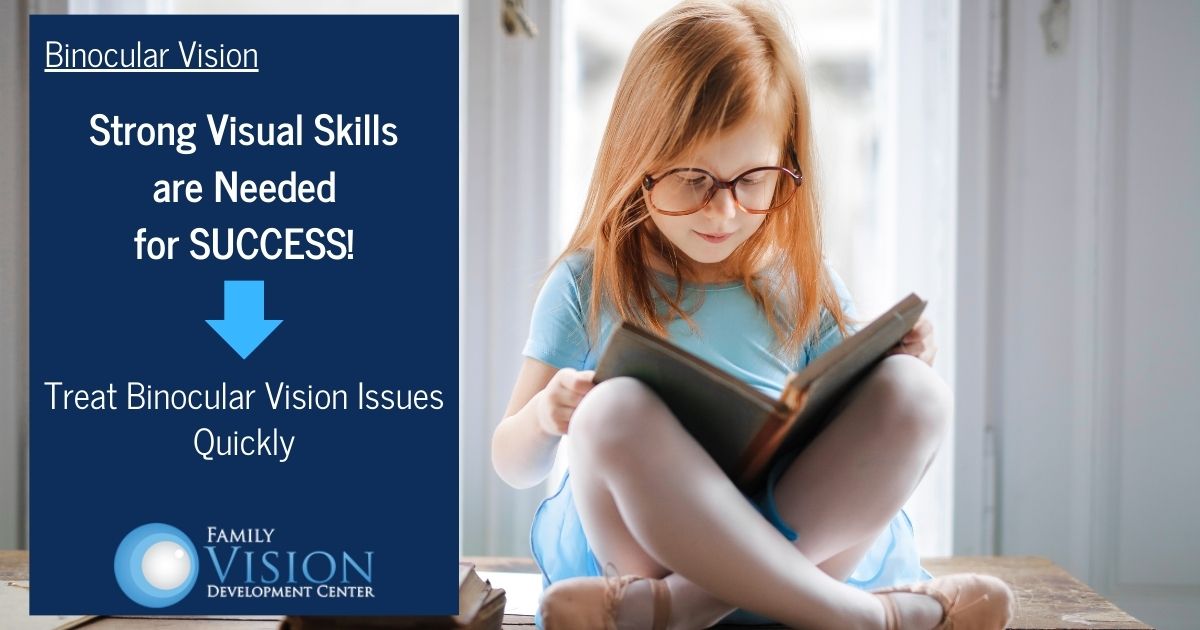Have you ever wondered why you can catch a ball with ease but struggle to thread a needle? The answer lies in the concept known as binocular vision. Binocular vision affects our ability to perceive the world in 3D, judge distances accurately, and navigate our surroundings effortlessly. But what exactly is it, and what happens when it does not function properly?
What is Binocular Vision
Binocular vision refers to the ability of the human visual system to merge two slightly different images from each eye into a single, three-dimensional perception of the world. Each eye captures a slightly different view due to their unique positions on the face, and the brain combines these images to create a comprehensive and immersive visual experience. This allows you to:
- Perceive depth and distance: This crucial visual skill is essential for tasks like athletic performance (catching a ball, shooting a basket or swinging a bat, for example), driving a car, and interacting with the world around you.
- Enhance visual acuity: Proper binocular vision can ensure focus and clarity, especially for near tasks like reading.
- Boost visual comfort: By reducing eye strain and fatigue associated with misaligned eyes.
Binocular Vision Disorders
While binocular vision functions seamlessly for many individuals, that is not always the case. When the eyes do not work together properly, it can result in conditions such as:
- Strabismus (Crossed Eyes): A misalignment of the eyes, where one eye may turn inward, outward, upward, or downward, disrupting binocular vision and depth perception.
- Amblyopia (Lazy Eye): A condition where one eye has significantly reduced vision, often leading to the brain favoring the stronger eye and inhibiting proper binocular vision development.
- Convergence Insufficiency: Difficulty in coordinating the eyes to focus on nearby objects, leading to eyestrain, double vision, and difficulty with tasks such as reading or computer work.
Vision Therapy as Treatment for Binocular Vision Disorders
The good news is that many binocular vision problems can be addressed through vision therapy. Vision therapy programs involve personalized exercises and activities designed to:
- Improve eye teaming and coordination: Helping your eyes work together efficiently.
- Strengthen eye muscles: Enhancing focusing ability and reducing eye strain.
- Develop depth perception skills: Allowing you to see the world in true 3D.
The Family Vision Development Center professionals have advanced training in the latest vision therapy techniques. Our individualized programs can help to restore proper vision and alleviate the symptoms that often accompany binocular vision disorders, such as headaches, blurred vision, double vision, sore or tired eyes, or difficulty with reading or concentrating. Correcting a binocular vision disorder with a vision therapy program can significantly affect quality of life and make everyday activities more manageable and enjoyable.
Contact our Aurora office at 630-962-2020 to schedule your appointment or to get your questions answered.
Family Vision Development Center is a full-service vision center offering innovative vision therapy services, sports vision therapy services, post-concussive vision rehabilitation, comprehensive vision exams for eyeglasses and contact lenses, management of ocular diseases including glaucoma, diabetes, macular degeneration and cataracts, and a state-of-the-art optical center offering the latest designs in eyewear. We are dedicated to keeping our patients comfortable and well-informed and we will explain every exam and procedure and answer all of your questions. We accept both scheduled and emergency appointments, and offer convenient financing and insurance options to ensure that high-quality vision care is available and affordable to all of our patients.

